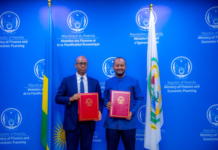After maintaining for years that they did not meet the conditions, the European Union has authorised the entry of Moroccan poultry meat, as stated in Regulation 2022/1040 published on 30 June.
“At the moment there is no need for extra imports from third countries that, in addition, do not comply with the demanding European regulations on animal health and welfare,” stressed Eloy Ureña of COAG, the Spanish organisation for farmers and livestock breeders.
In a press statement, the Coordination of Farmers’ Organisation (COAG) rejected the opening of the borders to Moroccan chicken. COAG has denounced on numerous occasions the “critical” situation that Spanish poultry farmers are going through in the face of the “brutal” increase in production costs resulting from the increase in energy costs (+150%), feed (+35%) and prices at the threshold of profitability.
“This situation may be aggravated by this increase in imports from third countries, which do not comply with the EU’s demanding regulations and high standards in terms of biosafety, quality and animal welfare,” said Ureña.
“In addition, at the moment they are not necessary because the effort and responsibility of poultry farmers guarantees the supply of chicken for the coming months.”
COAG asked the EU and the Spanish government for fewer imports from third countries and more support for local poultry farms.
“10 million were allocated for 5, 000 poultry farms, leaving out other poultry sectors such as laying hens, turkey, quail, etc… – Totally insufficient aid,” said Ureña.
“The reality is that the situation of poultry producers is limited and we demand that, from the administration, a package of powerful and effective support measures be implemented before the entire poultry sector goes bankrupt technically.”
Ureña also asked the ministry of agriculture for more means to increase the inspections of the Food Information and Control Agency (AICA) regarding compliance with the Food Chain Law in the contracts of integrating companies with livestock farmers and in abusive commercial practices of distribution chains.








